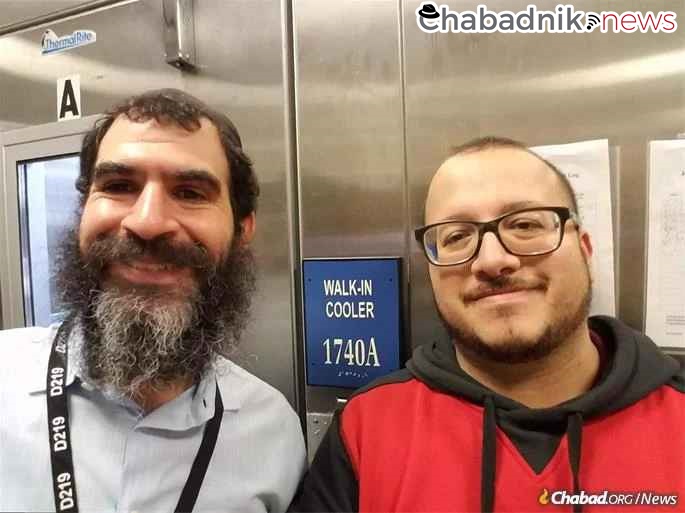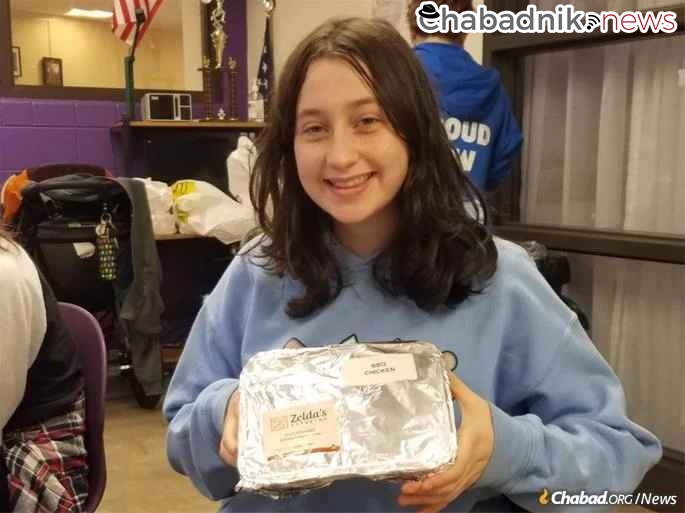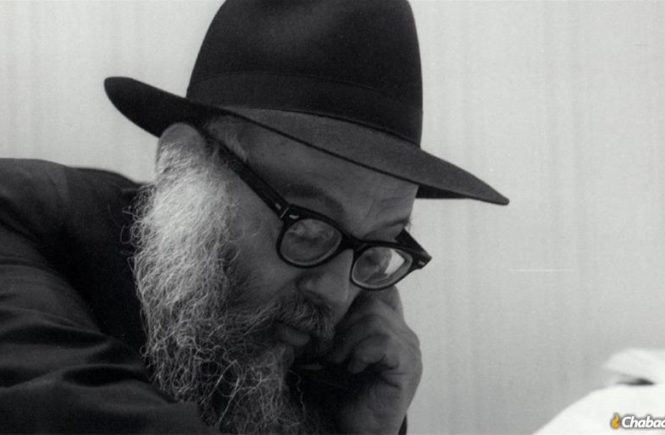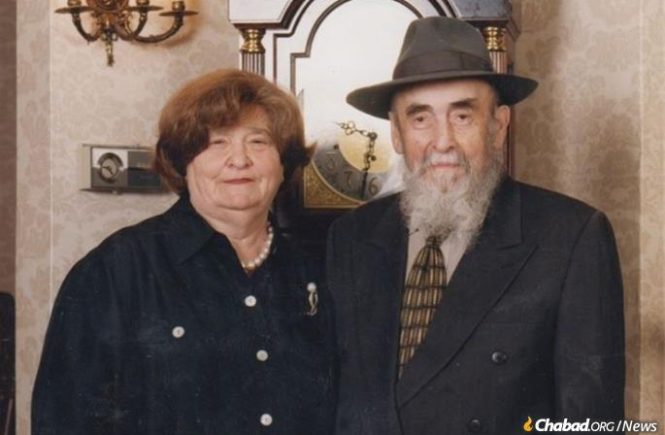A caring school administration steps in to help its Jewish minority
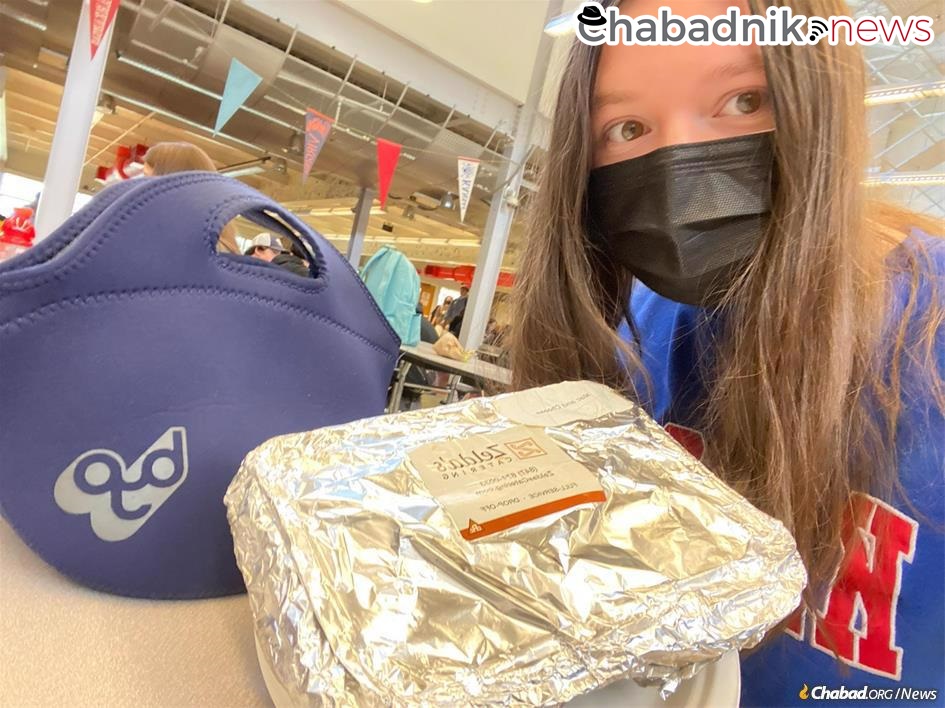
It’s hard being a teen.
It’s hard being different.
It’s doubly hard being different when you are a teen.
But it’s also rewarding.
For Chana Cantz, a sophomore at Niles North High School in Skokie, just north of Chicago, the sweet reward came a few weeks ago when the school’s cafeteria program began offering a glatt-kosher meal program.
Together with Niles West, the school comprises District 219, which has a combined enrollment of nearly 5,000, among whom fewer than 100 students are known to be Jewish.
The new program, which became fully operational just this week, allows students at both schools to buy hot, kosher-certified wrapped meals that are carefully priced to be comparable to the non-kosher options.
“I used to bring my own kosher food to school, but it would be room temperature by lunchtime,” says Cantz. “I am very excited that we will have warm food at lunch. Now I’ll be able to eat with my friends, instead of just watching them.”

Historically, District 219 enrolled thousands of Jewish students, but as demographics shifted, the Jewish public-school student population shrunk.
As a result, students and teachers say it has gotten harder to publicly identify as Jews in school, and at times some students have felt that they are victims of antisemitism.
In May of 2019, controversy erupted when the school district listed an optional educators’ training course called “Teaching Palestine” with content that many saw as problematic. Rabbi Yochanan Posner—who directs the Skokie CTeen (Chabad Teen Network) chapter with his wife, Yona Posner—says he believes that the school district consists of “good people who are not antisemitic or anti-Israel; they simply didn’t understand the nuances of the Israeli–Palestinian conflict.” He also credits the school district for working quickly and decisively to correct what he calls “an innocent mistake.”
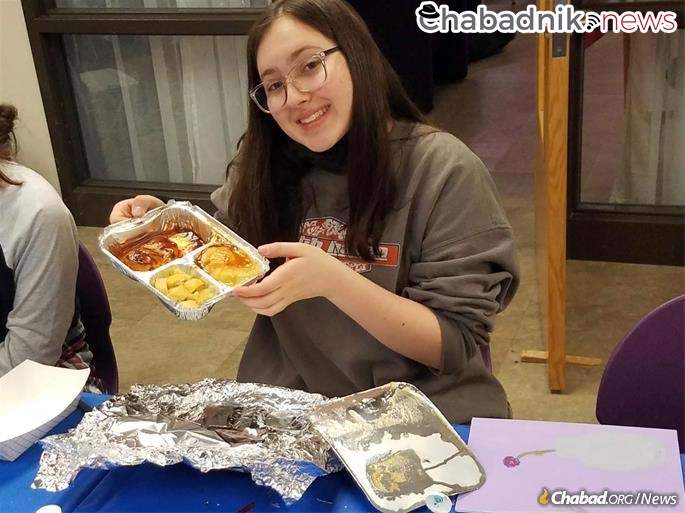
Looking to maintain their Jewish identity and connect with each other, Jewish high-schoolers got together at CTeen and founded the Association of Jewish Students in Niles North, co-sponsored by special-education teacher Anne Zavell and Rabbi Yochanan Posner. The charter of this school club is to provide a safe place for Jewish students to explore and practice Judaism, and to discuss issues relevant to Jewish students. This club is also a resource to educate Jews as well as non-Jews in school about Judaism, with the goal of reducing antisemitism.
In the fall of 2021, together with April Stallworth, the district’s executive director of communications and partnerships, the rabbi convened a meeting with Jewish parents. Held at Lubavitch Chabad of Skokie, it provided a forum for the administration to learn about the Jewish community’s needs and concerns, including the lack of kosher dining options.
In recent years, as Muslim enrollment increased, a halal option was added to the menu, but no one had thought to include kosher.
“The addition of kosher options to the school lunch program is a credit to the administration’s sincere wish to serve every segment of the very diverse student body,” says Rabbi Posner. “We are grateful for April’s vision and hard work. The district listened to our concerns and took tangible action.”

For her part, Stallworth says the administration is “very pleased that our Jewish students now have access to kosher meals at school. It’s a small part we can play in ensuring they feel seen and heard in our district. We are grateful for our partnership with Rabbi Yochanan Posner, who has been instrumental in this effort.”
Another example of the school’s attentiveness was their willingness to move the date of the upcoming graduation ceremony, which they had inadvertently placed for the first time ever on a Saturday. According to Posner, the schools never held graduation ceremonies on Shabbat or Shavuot, and he is glad that the administration went through the effort to maintain that tradition.
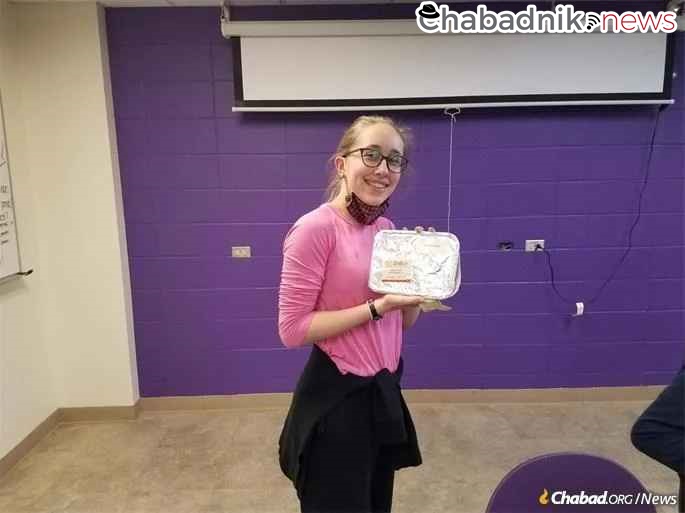
He says providing kosher food for Jewish has long been a concern of his, inspired by the efforts of the Rebbe—Rabbi Menachem M. Schneerson, of righteous memory—to ensure that college students have kosher dining available to them.
“I hope that other schools around the Chicago area and around America realize how eminently doable—and how very crucial—this is and follow suit,” he says. “For a Jewish kid in an overwhelmingly non-Jewish environment, being able to order a meal that is appetizing, fresh and kosher can make all the difference.”
